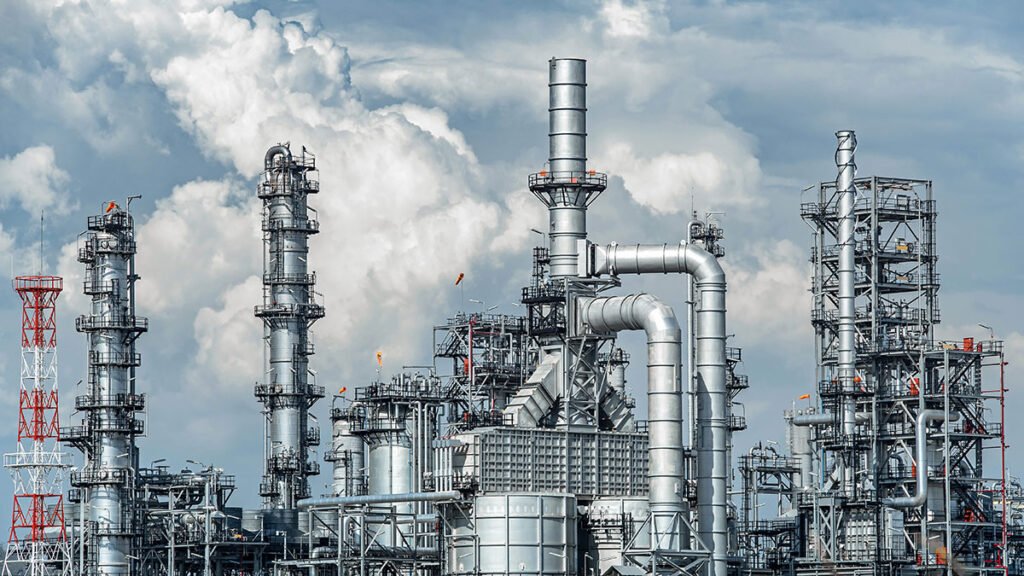As the Middle East undergoes a dramatic shift towards sustainable energy solutions, artificial intelligence (AI) is emerging as a key enabler of this transformation. Visionary leaders like Sakher Altoun recognize that the intersection of AI and energy has the potential to revolutionize the way the region manages resources, enhances efficiency, and accelerates the transition to clean energy.
By integrating AI-driven technologies, industries can optimize energy production, improve grid resilience, and reduce waste—paving the way for a future where energy is smarter, cleaner, and more sustainable. In this article, we explore Sakher Altoun’s insights into how AI is reshaping the energy landscape and why its adoption is critical for the Middle East’s economic and environmental goals.
AI: A Game-Changer for Energy Management
The traditional energy sector has long relied on historical data and predictive modeling for decision-making. However, Sakher Altoun sees AI as a more advanced tool that can process real-time data, identify inefficiencies, and suggest optimal strategies for energy distribution and consumption.
With AI-driven solutions, energy providers can reduce downtime, predict equipment failures before they happen, and dynamically adjust energy output based on demand fluctuations. This is especially important for the Middle East, where extreme weather conditions and energy-intensive industries require a more adaptable approach to power management.
For Altoun, AI-powered energy optimization is not just about cost savings—it’s about creating a resilient energy ecosystem that can sustain the region’s long-term growth.
Transforming Renewable Energy with AI
The Middle East has made significant strides in renewable energy, with ambitious projects in solar, wind, and hydrogen. Yet, Sakher Altoun argues that AI can take these efforts even further by enhancing efficiency and accelerating deployment.
For instance, AI algorithms can analyze satellite imagery and climate data to determine the best locations for solar and wind farms. These insights help maximize energy generation while minimizing costs. Additionally, AI-powered sensors can continuously monitor renewable energy systems, predicting maintenance needs and reducing the risk of unexpected failures.
By leveraging AI, renewable energy projects can operate at peak efficiency, ensuring that the region’s transition away from fossil fuels is both reliable and economically viable.
AI’s Role in Smart Grids and Energy Distribution
A major challenge in energy management is balancing supply and demand. Sakher Altoun believes AI-driven smart grids can revolutionize the way energy is distributed, making the system more efficient and responsive.
Unlike traditional grids, smart grids use AI to analyze consumption patterns, forecast demand, and automate energy distribution. This means power can be directed where it’s needed most, reducing waste and preventing overloads. In highly populated urban centers, this can significantly improve energy reliability while reducing carbon footprints.
For Altoun, smart grids represent the future of energy management—a future where AI ensures seamless integration between renewable energy sources and consumer demand.
AI and Energy Storage: A Critical Component
Energy storage remains one of the biggest barriers to widespread renewable energy adoption. Sakher Altoun sees AI as a solution to this problem, particularly in optimizing battery storage systems.
By using AI to predict energy consumption trends and adjust storage levels accordingly, providers can make better use of stored energy and reduce reliance on backup fossil fuels. AI can also enhance battery efficiency by detecting early signs of degradation and recommending maintenance or replacements before failures occur.
Altoun believes that the integration of AI into energy storage will unlock new possibilities for grid stability, making renewables more viable as primary energy sources rather than just supplementary options.
AI in Oil and Gas: Optimizing Legacy Industries
While the focus is on renewable energy, Sakher Altoun acknowledges that AI also has a role in optimizing traditional oil and gas operations. By implementing AI-driven automation, companies can improve exploration accuracy, refine extraction processes, and reduce operational risks.
For example, AI-powered predictive maintenance can significantly cut down equipment failures, preventing costly downtimes in oil refineries and drilling sites. Similarly, AI-enhanced carbon capture and storage technologies can help reduce emissions, aligning traditional energy sources with global sustainability goals.
Altoun emphasizes that while the world is shifting toward renewables, existing energy industries must also evolve—and AI is the key to making that happen efficiently.
Overcoming Barriers to AI Adoption in the Energy Sector
Despite its benefits, integrating AI into the energy sector comes with challenges, including data infrastructure limitations, regulatory uncertainties, and a skills gap in AI expertise. Sakher Altoun believes that overcoming these barriers requires a collaborative approach, involving governments, private-sector players, and research institutions.
He advocates for:
- Investment in digital infrastructure to support AI-driven energy management.
- Government policies that encourage AI adoption while ensuring cybersecurity and data privacy.
- Educational initiatives that equip professionals with AI and data analytics skills.
Altoun’s perspective is that technology adoption must go hand-in-hand with workforce development to ensure that AI integration is both effective and sustainable.
The Bigger Picture: AI’s Role in Economic Diversification
Beyond energy efficiency, Sakher Altoun sees AI as a catalyst for economic diversification—a priority for many Middle Eastern nations, including Saudi Arabia’s Vision 2030 and Iraq’s push for non-oil revenues.
By positioning the region as a leader in AI-driven energy innovation, Middle Eastern economies can attract investments, foster technological leadership, and create high-value jobs. For Altoun, this is an opportunity to not only modernize the energy sector but to redefine the region’s global economic standing.
Looking Ahead: A Future Powered by AI
For Sakher Altoun, the convergence of AI and energy is not just an idea—it’s an inevitability. As the world moves toward smarter energy solutions, the Middle East has a chance to lead, rather than follow.
Through AI-driven innovation, smart energy systems, and strategic investments, the region can build an energy ecosystem that is sustainable, resilient, and future-ready. Sakher Altoun’s vision offers a roadmap for how AI can bridge the gap between traditional energy models and the demands of a changing world.
With bold leadership and forward-thinking strategies, the Middle East can position itself at the forefront of the global AI-powered energy revolution—a vision that Sakher Altoun continues to champion.


